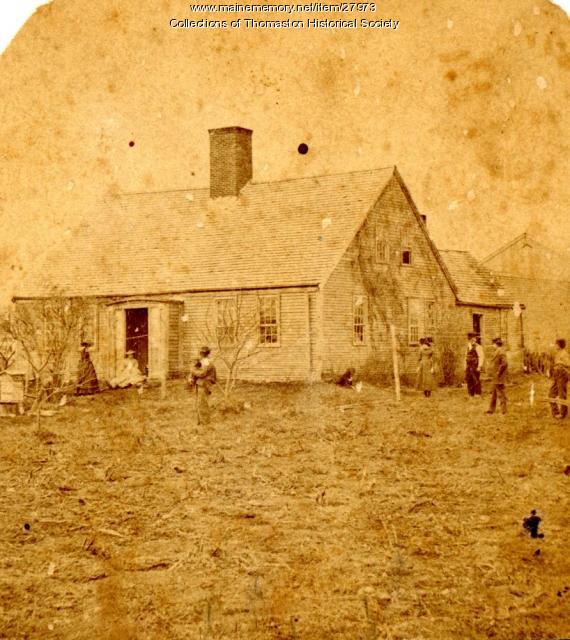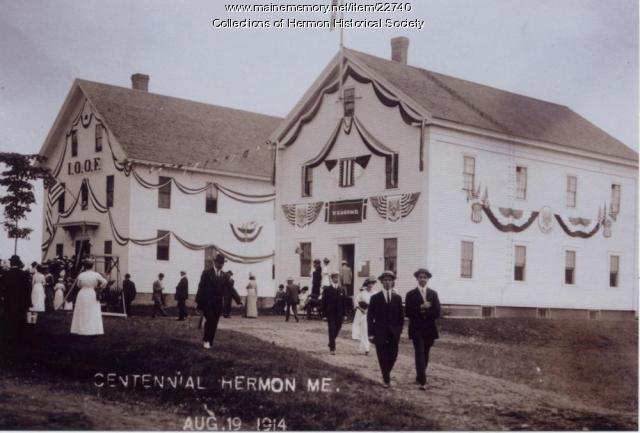Keywords: Thinking
Item 6160
Gannett Publishing Co., ca. 1930
Contributed by: Maine Historical Society Date: circa 1930 Location: Augusta Media: Photographic print
Item 6737
Brother Stephen Gowen, Sabbathday Lake Shaker Village, ca. 1910
Contributed by: United Society of Shakers Date: circa 1910 Location: New Gloucester Media: Slide from a print
Exhibit
May Baskets, a Dog, and a Party for Children
Two women thinking intruders were coming into their Biddeford Pool home, let the dog out to chase them away. Later, they discovered the truth about the noise at their door.
Exhibit
Student Exhibit: A Friend in Need!
Sometime in the 1920s a 700 hundred pound moose fell through the ice, likely between Norridgewock and Skowhegan. She was rescued by a game warden and another man. Here is the story.
Site Page
Thomaston: The Town that Went to Sea - Raymond Wallace
"Were kids affected? I think they all were. I think we might be going back there but it was quite a time."
Site Page
Scarborough: They Called It Owascoag - Educator Resources
"… analysis, historical interpretation, and critical thinking. If you develop a lesson plan using information found on this website that you would…"
Story
Sustainable Futures
by Bill McKibben, Schumann Distinguished Scholar Middlebury College
Climate change is the biggest thing humans have ever done. So we need to think big as we take it on.
Story
The Start of Brewing in Maine
by Alan Pugsley
Master brewer Alan Pugsley talked about the beginning of brewing in Maine
Lesson Plan
Building Community/Community Buildings
Grade Level: 6-8
Content Area: Social Studies
Where do people gather? What defines a community? What buildings allow people to congregate to celebrate, learn, debate, vote, and take part in all manner of community activities? Students will evaluate images and primary documents from throughout Maine’s history, and look at some of Maine’s earliest gathering spaces and organizations, and how many communities established themselves around certain types of buildings. Students will make connections between the community buildings of the past and the ways we express identity and create communities today.
Lesson Plan
Becoming Maine: The Votes for Statehood
Grade Level: 3-5
Content Area: Social Studies
Maine became a state in 1820 after separating from Massachusetts, but the call for statehood had begun long before the final vote. Why did it take so long? Was 1820 the right time? In this lesson, students will begin to place where Maine’s statehood fits into the broader narrative of 18th and 19th century American political history. They will have the opportunity to cast their own Missouri Compromise vote after learning about Maine’s long road to statehood.
















